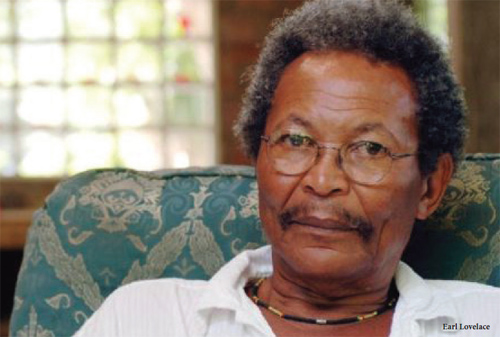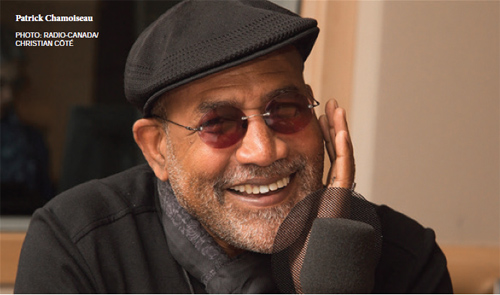|
September 2016

Issue Home >>
|

 “Enhancing discussion without the barrier of language, particularly in such a multi-lingual region as the Caribbean – to promote deeper integration, collaboration and exchange between academics”. This, according to Dr Savrina Chinien is the aim of the international conference entitled, The Caribbean, Melting Pot of the Americas: From Upheaval and ‘Origins’ to the Historical Future and its Representations. “Enhancing discussion without the barrier of language, particularly in such a multi-lingual region as the Caribbean – to promote deeper integration, collaboration and exchange between academics”. This, according to Dr Savrina Chinien is the aim of the international conference entitled, The Caribbean, Melting Pot of the Americas: From Upheaval and ‘Origins’ to the Historical Future and its Representations.
Melting Pot as it is abbreviated to, is a joint initiative of the Department of Modern Languages and Linguistics (MLL) at The UWI, St. Augustine, and Bordeaux Montaigne University in France. The proceedings are scheduled to take place in French, English and Spanish with real time translations, from Thursday 13 – Saturday 15 October. The venue is the Centre for Language Learning (CLL) on campus – which is equipped to enable simultaneous interpretations into the languages not being used by each presenter. This makes the conference inclusive of the diverse voices in the heterogenous Caribbean space.
Dr Chinien, Lecturer at the Department of Modern Languages and Linguistics at The UWI and an Associate Member of Bordeaux Montaigne University, is one of the co-organisers, along with Professor Jean-Michel Devesa of Bordeaux Montaigne University. Dr Chinien highlighted that this uniquely inclusive approach of interpretation is a big undertaking. She added that, “Our department is collaborating more with foreign universities as this is very important in enabling the Caribbean to be both regionally and internationally represented”.
The conference organisers have already secured a contract with the Agence Universitaire Francophone (AUF) to publish a peer-reviewed book based on conference papers presented, with publication set for September 2017. In Dr Chinien’s words, the conference seeks, on the one hand, to assess previous attempts by the scientific community to speak and think the Caribbean, as well as formulate new hypotheses in three areas. These are: (1) in the analysis of the processes through which inequitable and extremely violent relationships between people and classes, perpetuated by slavery, have ‘informed’ Caribbean societies; (2) in questioning the use of a ‘borrowed’ language for communication and creation; (3) the re-assessment of categories and notions through which criticism tends to comment and ‘territorialise’ Caribbean literary productions or writers and artists - from economic and social Caribbean formations.
Socio-political and economic issues pertinent to the Caribbean region will also be examined. For example, scholars from Martinique will be discussing the notion of ‘integration’ within the Caribbean, and against the historical backdrop Martinique as an overseas departement of France. A non-exhaustive list of topics planned for examination include: culture and identity; the linguistic aspect (including the Creole languages); questions of domination/emancipation of populations; the struggle of social classes and the ‘battle of the sexes’; cinema; the effects of globalisation; the economic aspect; strategies for evolving towards a consolidated regional ‘integration’; intra-Caribbean politics; the opening up of the Caribbean to the world.
 Two well-known guest speakers who will give addresses are writers, Earl Lovelace and Patrick Chamoiseau. From Trinidad and Martinique respectively, both these men are acclaimed authors who are studied at the undergraduate level at St Augustine. As artist-scholars, they are known for embracing creoleness in their writing, and therefore represent the concept of integration on that level. Two well-known guest speakers who will give addresses are writers, Earl Lovelace and Patrick Chamoiseau. From Trinidad and Martinique respectively, both these men are acclaimed authors who are studied at the undergraduate level at St Augustine. As artist-scholars, they are known for embracing creoleness in their writing, and therefore represent the concept of integration on that level.
The worthy effort of putting this conference on is however, not without its challenges. Dr Chinien indicates that the main challenge is funding. Bordeaux University has contributed to the expenses associated with interpretation. Support has also been forthcoming from the Head of the Department of Modern Languages and Linguistics, Dr Nicole Roberts as well as the Dean of the Faculty of Humanities and Education, Dr Heather Cateau, and the newly appointed Campus Principal, Professor Brian Copeland, all of whom have allocated resources, but there are still some short falls. The organisers have reached out to external stakeholders to raise further support for this initiative to think and speak the Caribbean. They continue to welcome favourable responses by private companies and other organisations that wish to lend financial support.
On a daily level, the idea of bridging language barriers in academia is perpetuated by the MLL department that boasts of one course of French and Spanish crossdisciplinary study taught by Dr Nicole Roberts and Dr Elizabeth Walcott-Hackshaw. There is also a new course named Francophone Caribbean Cinema, designed by Dr Savrina Chinien that will soon be offered to students from diverse disciplines. The latter was taught last semester to undergraduates in the BA French programme. Dr Chinien says that “cross-disciplinary initiatives should be encouraged to foster a deeper understanding and appreciation of the wealth of cultural diversity, identities and artistic expressions that exist uncelebrated within the Caribbean region”.
The conference is free of charge and the general public is welcome to attend. For further information, please consult the conference webpage http://sta.uwi.edu/conferences/16/icc/ |





